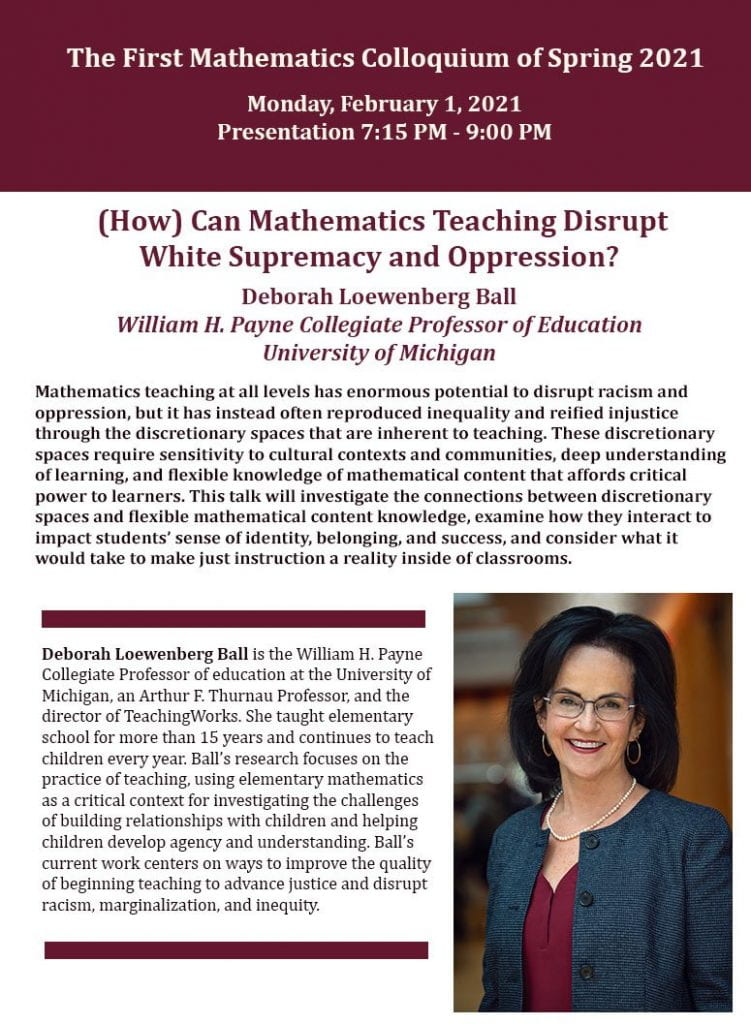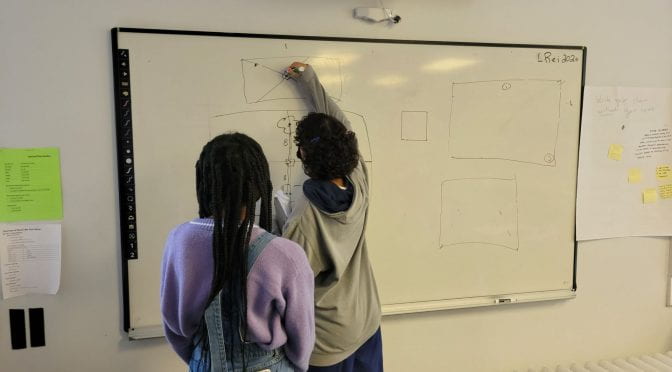A leader in progressive education since 1921, LREI teaches children to be independent thinkers who work together to solve complex problems. Students graduate from our diverse community as active participants in our democratic society, with the creativity, integrity, and courage to bring meaningful change to the world.
Since 1921, LREI’s commitment to social justice, equity and activism has ensured that every community member has access to the full LREI experience.
Our 14-year program explores, celebrates, and encourages differences and commonalities, and the challenges and opportunities they present. We view these efforts as integral to the personal and intellectual growth of each member of our school.
LREI is committed to each of its community members, each of whom has a responsibility to both the community and to the wider world. This is as important now as it was when LREI was founded.
I realized during my Sociology of Education Adult rED class with Charlene that all students don’t have access to the full LREI math experience. We have designed our program to give all students access to calculus, but not to calculus 2. Does that mean we should offer calc 2 to all students? No way! Does that mean we need to rethink the math program? Yes! How do we reorient the HS math program (not sequence) so that we actually meet the mission of the school?
We have to offer content, not just pedagogy that gives students the opportunity to learn how mathematical knowledge allows them to be active participants in our democratic society and bring meaningful change to the world. Social justice, equity, and activism must be addressed in relation to current and past mathematics. I don’t have the luxury of teaching in a subject area where there aren’t really societal expectations and outside influences on the curricula. I can’t throw out what others think should be taught to high school students but I can make sure that what we value as an institution is visible in every aspect what I teach.
Last week was the Teaching Contemporary Mathematics conference through NCSSM. Dr. Rochelle Gutierrez was the keynote speaker and really reemphasized for me the need to offer courses that are valuable to students for their lives beyond getting into college. Beyond trying to find a place in the white community. Beyond valuing what white communities value. “We’ve been in this place before… The education they are receiving is not a meaningful one. It’s not one that prepares them or their communities to be able to thrive and to have meaning to understand where they come from and where they’re trying to go.”
Dr. Tracie Salinas from Appalachia State University shared perspectives that I had not thought about before. The mathematics that we ask 8th graders to understand was unknown to some of the greatest civilizations in human history. Rome wasn’t built in a day and they didn’t know calculus. Or algebra or coordinate geometry. This was really mind-opening for me because I’ve been thinking a lot about where our curriculum has come from and it really does rest with what wealthy white males had been learning from tutors and in schools in England and the US. But why is that what we value? Why does everyone need to know this mathematics. Why don’t we value the mathematics that people use on a daily basis or in skilled jobs like plumbing, carpentry, or baking?
The other day some seniors and I got into a conversation about credit cards and why wouldn’t someone give you a mortgage if you didn’t have credit history, etc. I explained some of the reasonings but it also hit me that these kids could find the the derivative of a function but that they had no sense of financial mathematics. Yes, we can offer them a workshop in May and sure maybe their parents should teach them some of that information, but the white boy in the conversation knew a lot more than the 2 girls in the conversation. And that’s a problem. And there are other places you see clear distinctions/differences based on a part of a student’s identity (race, gender, socioeconomic class, etc). These kids are part of an economic system and therefore social hierarchy that they know nothing about because we (adults) haven’t taught them about it. Why not? What are we truly preparing our students for? They need to understand the system before they can partake in it or change it – and mathematics education must play a role in that.
As Dr. Salinas said,
“It can be easy to forget the role that mathematics and science have played in conveying power by:
– driving the navigational knowledge at made sailing for colonial purposes possible
– creating arms races which the nation with the “best science” had the “best toys” and posed the biggest threat
– contributing to the massive increase in food production available through agricultural technology but also contributed to the economic models driving food inequity
– developing a western-focused evaluation of mathematical and scientific rigor that devalues indigenous ways of knowing of non-western approaches.”
In thinking about the pre-calculus curriculum provided in most textbooks, it’s evident that military needs have influenced the content that is taught. I wonder how the world wars and the space race have impacted the HS math curriculum.
 The conferences I’ve attended, including the Teachers College Mathematics Colloquium “(How) Can Mathematics Teaching Disrupt White Supremacy and Oppression?” by Dr. Deborah Loewenberg Ball, have really brought to the forefront how backwards our mathematics curriculum and teaching have been. Theoretical mathematics is interesting, fun, and useful but not the epitome of HS mathematics education. Applied mathematics is valuable but it depends on the application. When is the math taught because it fits the problem rather than the problem written to fit the math? Functions aren’t the most useful or interesting part of mathematics.
The conferences I’ve attended, including the Teachers College Mathematics Colloquium “(How) Can Mathematics Teaching Disrupt White Supremacy and Oppression?” by Dr. Deborah Loewenberg Ball, have really brought to the forefront how backwards our mathematics curriculum and teaching have been. Theoretical mathematics is interesting, fun, and useful but not the epitome of HS mathematics education. Applied mathematics is valuable but it depends on the application. When is the math taught because it fits the problem rather than the problem written to fit the math? Functions aren’t the most useful or interesting part of mathematics.
I really appreciate teaching Math 2 this year. The other day many kids were interested in the content even though it was definitions of special quadratic factors, like Do2S and prefect square trinomials. They’re “good students” and willing to learn most anything put in front of them. Is this what I really want them to learn? And what about everyone who doesn’t find abstract algebra interesting? What are the long range skills that math should be teaching That kids should be learning in math? Developing logical arguments, communicating their thinking, justification and reasoning. Number sense. What’s the content that will help them learn these skills? Does it have to be what we currently teach or can we start thinking more broadly? Be radical (at least in the independent school world)?
“What is necessary is to follow in the footsteps of the great thinkers like Galileo and Newton, who questioned our perceptions of reality and sought answers from tactile experiences rather than textbooks or teachers.”
https://phys.org/news/2018-09-students-math-real-world.html
Rough idea: 2 years of math basics. Really, truly basics that we think every student should learn. Then 11th/12th grade electives:
Microeconomics, Calculus, Statistics, Data Analysis, Problem Solving (geometry, voting, lots of options) these can be mixed grade levels or single-grade levels. Math teachers would have to learn stuff and figure out how to teach these topics in an inquiry-based approach. We can embed test prep content and/or traditional sequence in some of these. Describe the classes thinking about who they would be for. Which students would want to take each of these classes… if you’re interested in ______ then you should take ________.
After spending 2 hours working through unit 1 of an EdX course on AP microeconomics, I think a key idea will be to offer electives geared towards different areas of study. I’ve connected with a teacher at NCSSM who shared information about a number of elective courses that they offer. I’ve shared with my colleagues the courses that seem like they would fit into our program the best. It will be just as important to teach these courses with an anti-bias approach. So I’ll be looking for some resources in terms of content, pedagogy, and ideas. I’ve got a number of books and articles lined up, now I just have to find the time and energy to dig deep.
Wherever we end up with the math program, I will keep in mind what Sonya Renee Taylor said: “Do not go back to normal.”

